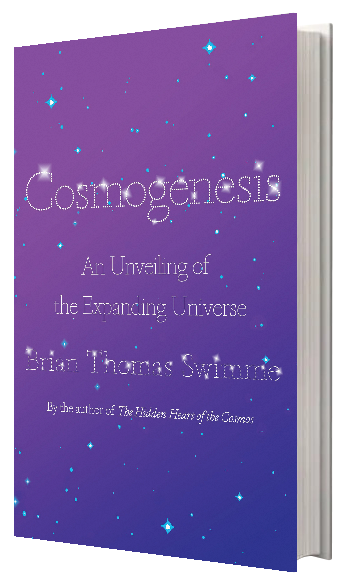BOOK
Cosmogenesis
An Unveiling of the Expanding Universe
In my life as a cosmologist, my mission has been to celebrate the great events of cosmogenesis by employing the central theories of contemporary science: quantum mechanics, the second law of thermodynamics, the general theory of relativity, plate tectonics, natural selection, encephalization. These theories have enabled us to discover our cosmic genesis, which can be summarized in a single complex sentence: the universe began fourteen billion years ago with the emergence of elementary particles in the form of primordial plasma, which quickly morphed into atoms of hydrogen, helium, and lithium; a hundred million years later, galaxies began to appear, and in one of these, the Milky Way, minerals arranged themselves into living cells that constructed advanced life, including evergreen trees, coral reefs, and the vertebrate nervous systems that humans used to discover this entire sequence of universe development. That sentence required four and a half centuries of scientific investigation of matter. Cosmogenesis is certainly among the ten most significant ideas in human history. It dwarfs Copernicus’s discovery that the Sun is the center of the solar system.
After decades of teaching this evolutionary cosmology, I suddenly realized something. I had left myself out. The demands for getting the necessary knowledge to tell the stories of Earth and universe filled me so completely I forgot to include the story of the storyteller. To be honest, it was not just that I had forgotten, I had tricked myself into thinking cosmology was the story of how things “out there” evolved through time. But then I realized I was one of those things, that I was evolving, that I was as much a development of the universe as were stars and galaxies. If I wanted to tell the story of the expanding universe and how it developed through time, I needed to include the story of my long struggle out of the structures of existence I had been born into.
This book lives in the overlap of two genres. It is in the tradition of autobiography in that it is a search for meaning that began explicitly in 1968 with Denise Santi and Bruce Bochte at Santa Clara University, that deepened with Dolores Maro at the University of Puget Sound and with Matthew Fox in Chicago, and that culminated in 1983 in New York City in a yearlong conversation with Thomas Berry. But in addition to being autobiographical, it is also in the tradition of cosmology in that these conversations were woven around the major features of the expanding universe.
Combining autobiography and cosmology has become a necessity. During the years before the discovery of cosmogenesis, we scientists could live in the fantasy of thinking we could step out of the universe in order to understand it. But there is no outside place where cosmologists can stand and see the nature of things. Every adequate cosmology must include the story of the narrator. To explore this idea, Professor Carolyn Cooke, my colleague at the California Institute of Integral Studies, and I constructed a series of courses around a neologism that brought the two genres together, auto-cosmology. Though Carolyn and I thought it was a new term, the word was used, and perhaps invented, in 1979 by Ursula K. Le Guin. Her term captures the new opportunity for those writers, artists, scientists, and musicians who have a cosmic sense, who see their work as involving the universe as a whole.
One last point needs to be made about the book. Not one of the ten thousand previous generations of humans knew the cosmic sequence of transformations that brought us forth. Those of us exploring the meaning of this discovery are venturing onto untrodden land. It might take centuries for us to articulate an adequate orientation within the cosmic river in which we find ourselves. Which means that in addition to the thrill of voyaging into unmapped territory, we need to remember that any suggestion of having arrived at a final understanding is the presence of folly. My own story is offered with the hope that it might become a small part of an emerging, planetwide conversation on how to live together in this fourteen-billion-year enterprise.




